 |
The McLeod Plantation was handed down through three generations and made it's money from Sea Island Cotton. William McLeod died in 1990, and with no beneficiaries, left his estate to be preserved.
|
Everyone feels differently about history. I think its important to experience history to understand why and how certain things happened, and whether positive or negative results, learn from them. There are several plantations here in the Charleston area. All owned slaves at one time or another.
Sunday morning we toured the McLeod Plantation Historical Site, maintained by the Charleston County Parks and Recreation Dept. We were so lucky to have our tour guide, John. He shared that he is a Gullah Geechee descendent. The Gullah Geechee were enslaved people from West and Central Africa, brought to what is now known as the Gullah Geechee Cultural Corridor extending from North Carolina to Florida.
I was not prepared for the sadness I felt and I can't begin to convey how I felt with pictures. Hearing and reading about history is just not like being where it happened and 'feeling' it.
 |
| John was our tour guide. |
 |
| The original kitchen, away from the main house because of the fire potential. |
 |
Live oak on the property. I saw it listed as both 300 and 600 years old, either way it was old and massive.
|
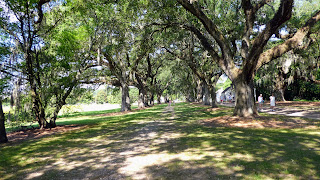 |
| This was the original road, lined on both sides with Live Oaks, that went to the main house. There is a street at the end now, but originally the road went another half mile. Slave homes lined both sides of the entire road. |
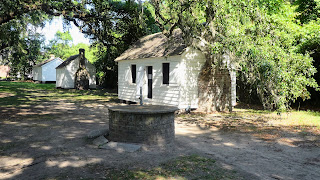 |
These are the small slave homes. A few were improved with electricity, not sure about water, and none had a bathroom. These same houses were rented out to enslaved descendents and others until 1990. There are 6 left.
|
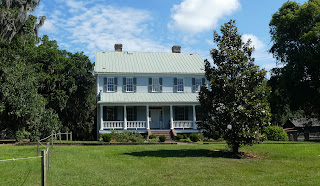 |
| The original entrance above became the back. |
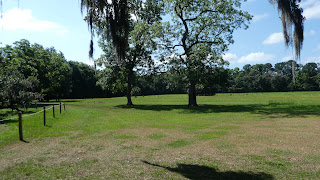 |
| This was a cotton field. Sea Island Cotton (long staple) is the highest quality and it is produced along the coastal shore. The boll weevil and cheaper short staple cotton contributed to it's decline, although it is making a come back. |
 |
| Sea Island Cotton is very soft. Due to Covid they stopped growing it here but they are hoping to resume soon. |
 |
| The Gin House was restored. |
 |
| There used to be access to the river, now there is a street separating the river from the estate. |
Where are the Piepers now? Charleston, SC
If you put a comment directly on the blog , you may see "anonymous" below with a drop-down box that allows you to change "anonymous" to your name so we know who is commenting. Thanks for traveling along with us. Ann and Pat












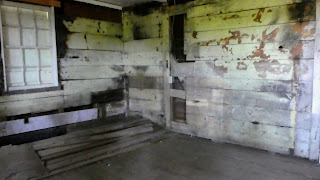
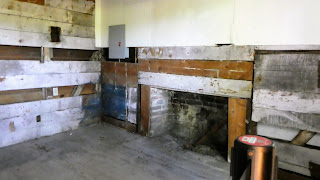


No comments:
Post a Comment